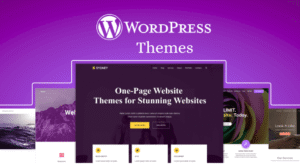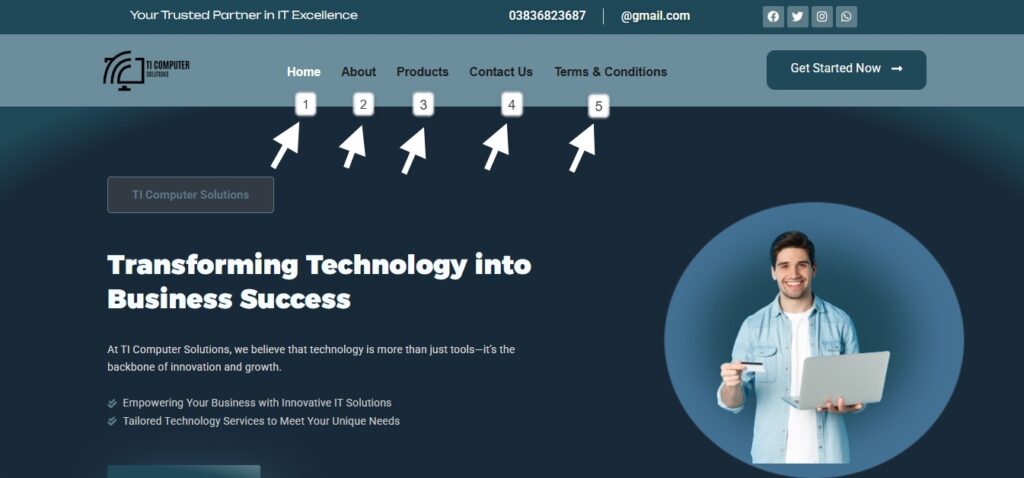Struggling with CMS? Discover the Right One for You
Table of Contents
When selecting the right Content Management System (CMS) for your website, it’s essential to treat it like a business partner. The CMS should align with your goals and be able to flex and adapt to changing demands. It should be easy to work with, without requiring you to deal with complicated code, and must have strong integration capabilities with other tools.
A good CMS allows you to customize your design, download and modify pre-built templates, and add extensions to enhance functionality. It should also provide features like image storage and web page creation to help you manage content effectively. Always consider the strengths and weaknesses of different options to choose the most suitable solution for your website.

How to Choose the Right (CMS) for Your Website (Quick Answer)
Identify your needs: Consider the type of website (blog, business site, e-commerce).
Ease of use: Look for a CMS with an intuitive, user-friendly interface.
Customization: Ensure it offers flexibility, themes, and plugins to meet your requirements.
Scalability: Choose a CMS that can grow with your website as your needs evolve.
Support and community: Opt for a platform with strong support and an active community.
Cost: Consider both initial setup and long-term costs (hosting, plugins, themes).
Security: Make sure the CMS provides regular security updates and features.
What Is a CMS?
A Content Management System (CMS) is a software application that helps you create, manage, and update your website without needing to know complex code. It’s a user-friendly system that operates directly in your browser, allowing you to focus on design, content, and functionality. A CMS allows you to customize the design of your site using pre-built templates, and you can also modify them to suit your style. The beauty of a CMS lies in its flexibility, letting you add extensions for extra features, such as image storage and web page creation. Whether you’re just starting or improving an existing site, a good CMS is your foundation for success.
- A Content Management System (CMS) is a software application that helps you create, manage, and update your website easily, without needing to learn complicated code. It runs in your browser, offering a straightforward way to handle both the design and content.
- A good CMS allows you to customize your site using pre-built templates and modify them according to your needs. You can also add extensions for additional features like image storage and web page creation.
- To make an informed decision, learning how to gather details about a website can be a helpful step in selecting the right CMS for your website’s goals and requirements.
The Americans with Disabilities Act (ADA) is designed to protect individuals with disabilities from discrimination, including in the digital space. As businesses move more online, understanding ADA Title I, Title II, and Title III is crucial for staying compliant and avoiding lawsuits. These titles outline key requirements for employment, public services, and public-facing businesses to ensure equal access for all individuals, regardless of ability.
How a CMS Works: Basic Functionality and Process
A Content Management System (CMS) allows you to build and manage your website without needing to understand complex code. It works by separating the front-end, which users see in their browsers, from the back-end, where all the content is stored and processed. On the front-end, you might have blog posts, galleries, and videos, which are created using markup languages like HTML, CSS, and JavaScript. These pages interact with the back-end, where databases and programming languages like PHP, Python, Ruby, and Java handle the functionality of the site. The CMS enables you to upload content to a web server, which stores it in a web server database. This content is then pushed to the front-end whenever a user accesses your site. The content editor allows you to easily manage and update posts, pages, and various file types like PDF documents, images, text, and audio files. The interface is designed to be beginner-friendly, meaning you don’t need technical knowledge to make your site work. For more advanced needs, features like revision control, settings, and permission systems allow you to fine-tune your CMS for better organization, security, and traceability.
Types of CMS
Popular CMS Examples
When deciding on the best CMS platform for your website, it’s important to think about your user needs and goals to achieve the desired end result. There are several popular web content management systems (WCMS) available today that cater to various requirements. Each platform offers unique features, so it’s essential to consider the functionalities they provide and how they align with your project needs. Whether you’re looking for simplicity or advanced customization, you’ll find a CMS that fits your preferences. Here is an Some examples websites
WordPress.org
WordPress is the most popular web content management system in the world, powering 42.9% of all websites. Originally a blog publishing platform, it has grown into a self-hosted CMS capable of handling all types of websites, from eCommerce stores to learning sites and simple portfolios. WordPress is known for its versatility and scalability, with an enormous library of plugins and themes that are easy to configure. Since it’s an open-source platform, WordPress has a large community and many forums where users can find help and connect with others. For beginners, this platform is especially useful, even though it has a steep learning curve, because there are plenty of tutorial websites and resources to guide you along the way.
Drupal
Drupal is a powerful web content management system widely used by large businesses and government entities like NASA, Tesla, Sony Music, and Nokia to manage their web content. It offers excellent page load time and advanced security tools, making it a solid choice for sites requiring high performance. With its built-in modules, you can easily integrate your website with popular analytics tools, and also incorporate marketing and eCommerce features. While Drupal is great for professionals, it requires coding skills and hosting services. The interface might be complicated for beginners, especially when compared to simpler platforms like WordPress. However, its robustness makes it a go-to for more complex websites.
PrestaShop
PrestaShop is an increasingly popular content management system used mainly by small to medium-sized eCommerce businesses. One of the main benefits of using PrestaShop is its simple onboarding process and user-friendly eCommerce tools, making it easy for users of all skill levels to create a professional online store. It supports multiple currencies and languages, allowing you to expand your market reach. Additionally, SEO tools are available to help improve your store’s ranking on SERPs. However, PrestaShop has limited scalability, making it less suitable for large-scale businesses. To scale your store, you’ll need to invest in premium modules and templates, and ensure you have reliable hosting to get your site up and running.
Magento
When selecting a Content Management System (CMS) for your website, it’s essential to explore Magento, a popular eCommerce platform known for its flexibility and power, especially suited for medium and large-scale online stores. Well-known companies like Samsung, Nike, and Ford choose Magento for its scalability and advanced customization options, which can accommodate various business needs. Magento offers two main versions: the open-source version, which is free and comes with great features such as global selling, site search, and catalog management, and the Commerce version, which provides premium functions and support at an additional cost. The right choice depends on your individual needs, whether you want a no-cost solution or require the enhanced capabilities of the premium version.
Joomla
Joomla is a well-known open-source content management system that works well for both personal and business use, much like WordPress. One of its key advantages is that it allows you to manage content in segregated parts, making it ideal for websites that require handling multiple content types. Joomla revision features help you modify files safely, which is a great plus. However, Joomla requires technical knowledge, so it’s more suitable for developers or users with some web development experience. If you’re a beginner, using Joomla web hosting can make things easier since it’s a solution specifically optimized for Joomla and comes with user-friendly hosting management tools to simplify the process.
Plugins, extensions, and themes
Plugins, extensions, and themes are powerful tools that can significantly enhance the customization of your Content Management System (CMS). With these additions, you can easily create posts, design pages, and modify your website’s overall appearance without needing to touch the core functionality.
Plugins are software components that provide specific functionalities like search engine optimization (SEO), security, and other customizations. You can add them to your website to expand its capabilities or integrate with third-party services. Similarly, themes control the visual design and layout of your website. These are usually available through the CMS’s theme directory or third-party marketplaces, and they can be easily installed to ensure a consistent, professional look. Both plugins and themes can be downloaded and installed with a few simple steps, making them an accessible way to enhance your website’s performance and appearance.
Whether you want to modify the color scheme, add visuals, or improve your site’s security with extensions, these features give you the flexibility to tailor your CMS exactly to your needs.
Pros and Cons of Using a CMS
Pros:
- Cost-effective: Most CMS platforms are free to use, with access to free extensions and templates.
- Highly scalable: You can easily add new features with plugins and extensions.
- User management functionality: Customize user roles and privileges, making it easier to manage different members of your team.
Well-documented: Resources like tutorials, FAQ pages, and online documentation are available, making it easier for beginners to get started.
Cons:
- Security risks: Not updating your extensions and templates regularly can make your site vulnerable to hackers who often target CMS-powered websites.
- Bare minimum SEO: Some CMS platforms only offer basic SEO features, meaning you’ll need additional manual search engine optimization or extra extensions to improve your site’s search engine ranking.
- Limited flexibility: Implementing specific features may be challenging without technical knowledge or hiring a developer.
Consider Your Website Type
When selecting the right CMS for your website, it’s essential to consider the website type and the specific tools it needs to function effectively. For instance, WordPress is perfect for blogs, while Magento is more suited for eCommerce.
Factor in the Cost
You should also weigh the cost of content management systems, many of which are free but may require purchasing individual products for additional features. Ensure the CMS fits within your budget while providing the necessary support for future needs.
Scalability and Future Growth
Scalability is another key factor—choosing a system with a broad extension and template directory will offer greater options as your website grows. Additionally, check the server requirements of any extensions you plan to use.
Focus on SEO Optimization
For SEO, the CMS should be capable of optimizing your web pages for search engine crawlers, while also offering tools for email marketing and social media marketing to improve your SEO efforts.
Prioritize Security
Lastly, prioritize security, ensuring the CMS includes up-to-date built-in security features capable of protecting against various malware types.
Signs That You’re Ready for a CMS
If your current website feels slow or outdated, it might be time to consider a content management system (CMS). Whether you’re just getting started or your current solution isn’t meeting your needs anymore, a future-ready CMS can provide the tools necessary to keep up with your brand’s evolving needs. The right CMS will help streamline your work, making it easier to manage content and improve the overall performance of your website. If you’re looking for more efficient and scalable solutions, this could be the perfect time to invest in a CMS that’s aligned with your project goals and objectives.
How to Identify the CMS of a Website?
To determine the CMS of a website, simply add /wp-admin/ to the domain name in the URL bar. If you’re redirected to a login page with password fields, it’s likely WordPress. This reveals the admin panel and helps you quickly identify the website’s CMS.
My Preferred CMS and Why
- WordPress is the best CMS for beginners.
- It has a user-friendly interface.
- There is a vast selection of plugins to choose from.
- Active community support makes it easy to get help.
- Flexible enough to grow with your needs.
- Ideal for starting a blog or building a complex website.
- It can adapt to your goals over time.
Conclusion
Choosing the right Content Management System (CMS) is a crucial step toward building and managing your website efficiently. With the right CMS, you can ensure scalability, security, and seamless content management, all while saving time and resources. Whether you opt for WordPress, Magento, or another CMS, it’s important to assess your website type, cost considerations, and SEO needs. Don’t forget to consider the plugins, extensions, and themes available to enhance your website’s performance and appearance. When you’re ready for a CMS, ensure it aligns with your project goals and helps you achieve the future-ready website you envision.
For additional guidance, learn more about securing your website by reading this article on how to implement SSL certificates.
ABOUT ME !!

Maryam Ahmed
With a passion for modern design and functionality, I create custom websites that are visually appealing, dynamic, and SEO-friendly. From personal blogs to business platforms, I bring your vision to life with creative design and expert development.
RECENT POSTS

Top Web Design Services for Modern Businesses

10 Web Design Tips to Make Your Website Stand Out in 2025

Website Development Basics: A Simple Guide for Beginners

Why Your Social Media Marketing Strategy Isn’t Working

Master UI UX Design with Google and the Best Free Courses Online.

Best WordPress Themes for Modern Business Websites



